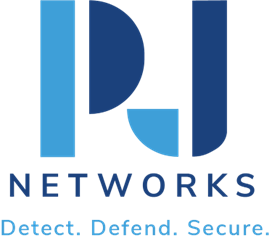Security Considerations with SD-WAN: Insights from Top Providers
In today’s digital landscape, businesses are consistently seeking reliable and innovative solutions to manage their networks efficiently. Software-Defined Wide Area Networking (SD-WAN) has emerged as an advanced technology that simplifies network management and optimizes performance. However, as networks become more complex, security concerns have become paramount. This blog delves into the security considerations of SD-WAN, highlighting insights from top providers like P J Networks Pvt Ltd and emphasizing the significance of adopting secure SD-WAN solutions.
Security Challenges in SD-WAN Implementations
While SD-WAN offers remarkable benefits such as cost savings, enhanced application performance, and agility, it also presents several security challenges. These include:
- Decentralized Networks: With SD-WAN, the network’s architecture becomes more decentralized, increasing potential vulnerability points.
- Increased Attack Surface: As network boundaries expand and incorporate cloud services, the attack surface grows, making it more susceptible to cyber threats.
- Data Integrity and Privacy: Ensuring data remains intact and confidential during transmission is critical.
- Policy Enforcement: Distributed environments can lead to inconsistent policy enforcement across the network, exposing it to potential risks.
How Top Providers Enhance Security
Top SD-WAN providers, including Indian companies like P J Networks Pvt Ltd, are at the forefront of delivering secure networking solutions. They enhance SD-WAN security by integrating advanced technologies and following best practices in network protection.
P J Networks Pvt Ltd, for instance, focuses on offering comprehensive security layers within its SD-WAN solutions. By prioritizing encryption, identity management, and threat intelligence integration, they provide businesses with robust protection against various cyber threats. Their dedication to secure networking ensures clients maintain the confidentiality and integrity of their data, despite the burgeoning complexities of modern networks.
Key Security Features
Leading SD-WAN providers implement several key security features to safeguard network environments:
- Encryption: This is crucial for protecting data in transit. Top providers use high-standard encryption protocols, ensuring all transferred data is secure from interception and tampering.
- Firewall Integration: Providers incorporate next-generation firewalls that offer deep packet inspection, intrusion prevention, and application-layer visibility to detect and block threats.
- Identity and Access Management (IAM): Establishing strict identity verification measures helps in managing who can access network resources.
- Threat Intelligence: Many providers integrate threat intelligence to identify and mitigate potential threats through real-time data analysis.
- Segmentation: Network segmentation is key to isolating sensitive data and minimizing lateral movement in the event of a breach.
- Secure Remote Access: With the rise of remote work, secure remote access solutions such as VPNs and zero-trust network access (ZTNA) are essential.
Best Practices
To maximize SD-WAN security, businesses should adhere to the following best practices:
- Regular Updates and Patching: Keeping software and security measures updated protects against known vulnerabilities.
- Continuous Monitoring: Implementing systems for continuous network monitoring can help in promptly identifying and responding to anomalies.
- Security Training: Regular training for employees ensures they are aware of potential threats and the importance of maintaining network hygiene.
- Policy Management: Consistent review and enforcement of security policies across the network help in maintaining uniform protection.
Compliance and Regulations
For businesses operating in India and globally, compliance with various regulations and standards is crucial. SD-WAN providers like P J Networks Pvt Ltd ensure their solutions meet the necessary compliance requirements, such as:
- General Data Protection Regulation (GDPR): For businesses dealing with EU data subjects, GDPR compliance is mandatory.
- ISO/IEC 27001: This standard specifies requirements for establishing, implementing, maintaining, and continually improving an information security management system.
- Telecom Regulatory Authority of India (TRAI) Guidelines: Providers must ensure adherence to local telecom regulations and guidelines.
- Industry-Specific Standards: Depending on the industry, providers may need to comply with standards such as PCI DSS for payments or HIPAA for healthcare.
Conclusion
In conclusion, while SD-WAN offers substantial benefits in terms of flexibility and efficiency, securing these networks remains a priority. Top providers, including P J Networks Pvt Ltd, continue to innovate their solutions, focusing on delivering robust, secure networking environments tailored to the needs of modern enterprises.
By leveraging advanced security features and adhering to best practices, businesses can protect their data and networks from growing cyber threats. Ensuring compliance with relevant regulations further strengthens their security posture, enabling them to confidently embrace the advantages of SD-WAN technology. As the digital landscape evolves, adopting secure SD-WAN solutions will be pivotal for any organization looking to stay ahead in cybersecurity.
